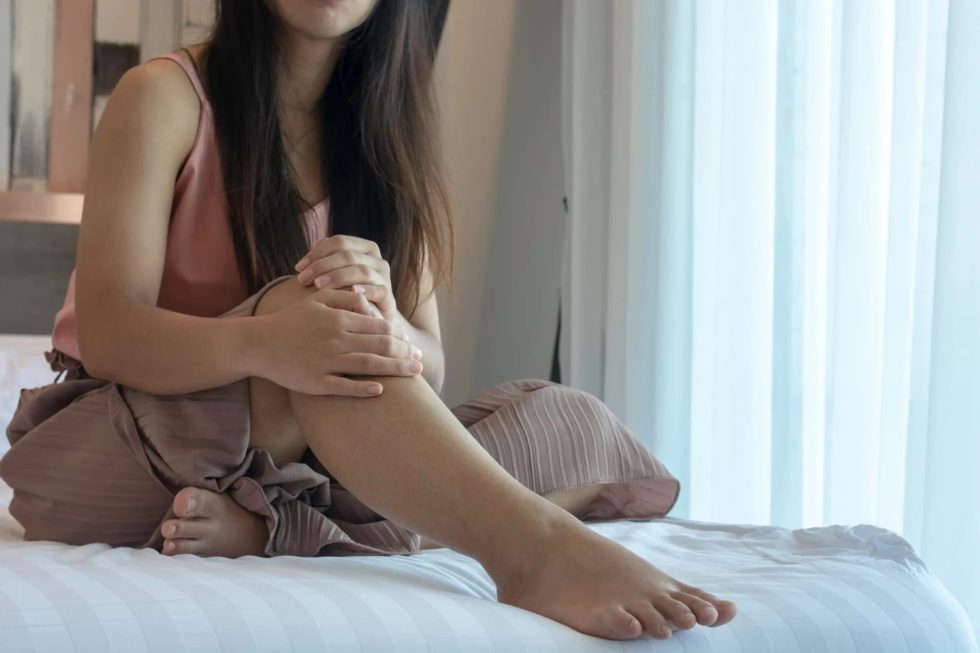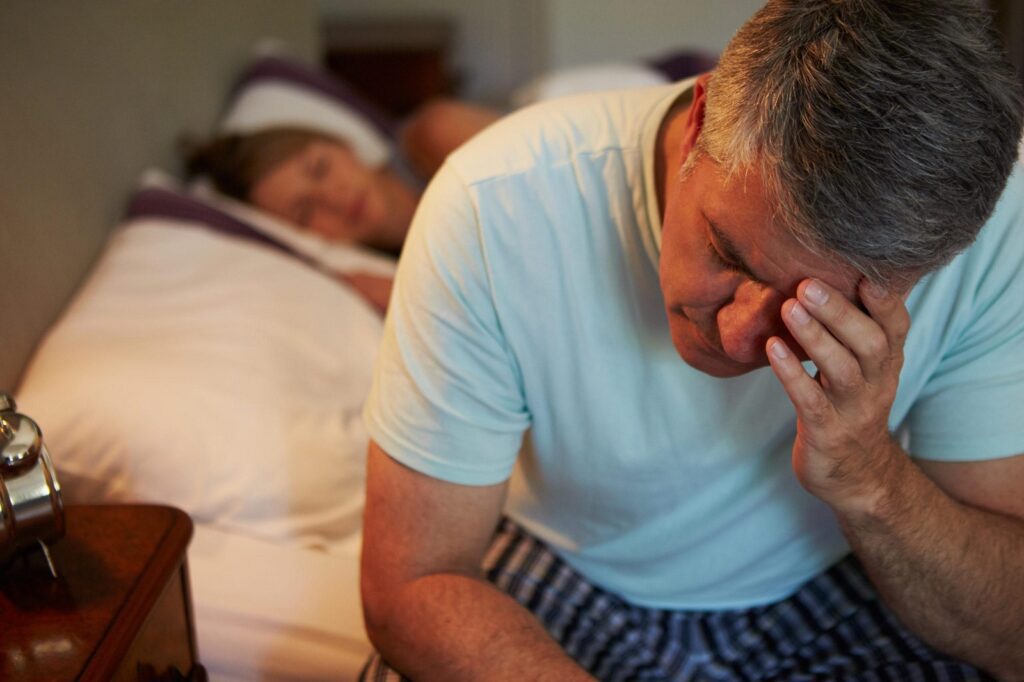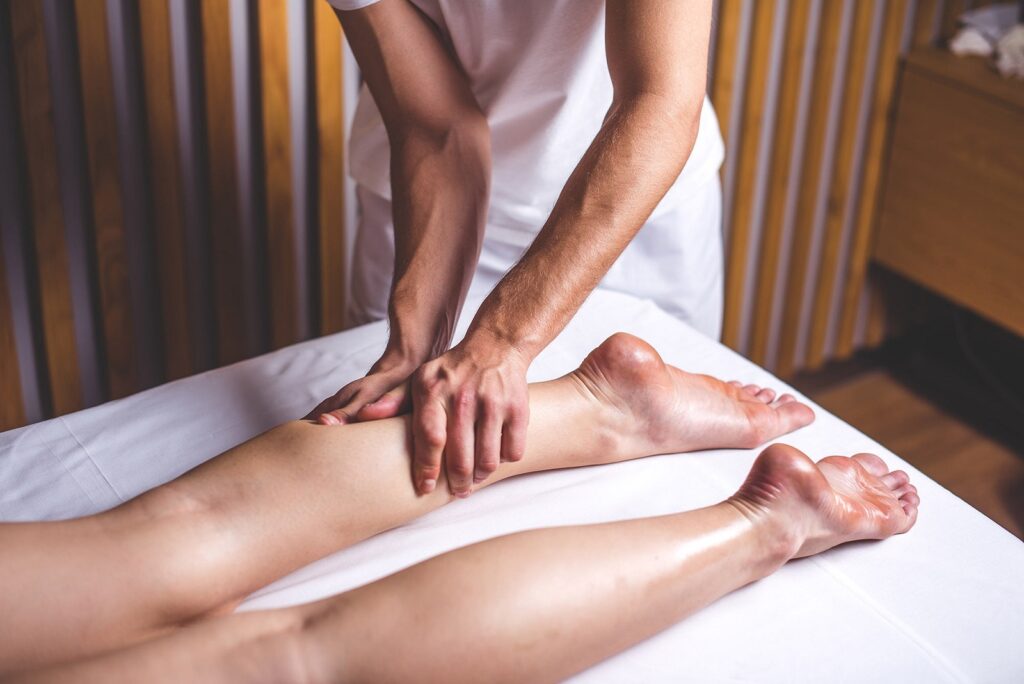Does Leg Pain Make You Lose Sleep?
Author: StrideCare Internal Team

A patient named Jackie* came to us recently hoping that we could help her with her leg pain. But it wasn’t just any leg pain. She described it as this irresistible urge to move her legs and an intolerable “pins and needles” feeling—especially when lying down at night after a long day at work. The condition came and went but was getting more frequent. As a result, she was losing a lot of sleep.
Jackie was surprised to learn that she had restless leg syndrome (RLS). More than just leg pain, RLS is classified as a sleep disorder since it typically happens when a person is at rest and only improves with movement. Perhaps you’ve experienced the same thing and wondered, “How often does leg pain make me lose sleep?”
If the quick answer is often, it’s important to see a doctor now before your condition worsens.
Are Any of These Leg Pain Symptoms Making You Lose Sleep?
- Uncontrollable urge to move your legs while sitting or resting
- Difficulty falling asleep and staying asleep
- Pins and needles sensation
- Muscle cramps
- A sensation of burning, aching, prickling, numbness, or tugging
- Itchiness
- Pulling or creepy-crawly feeling in legs

Why Is My Leg Pain Not Letting Me Sleep?
Restless leg syndrome is a sleep disorder that affects approximately 1 in 10 adults. On top of that, it can be difficult to diagnose since symptoms come and go and usually only happen at night. As a result, not a lot of people know about it or how to recognize it when it’s happening—so they suffer in silence. More women than men suffer from RLS, and it can begin at any age. Patients often experience fatigue and daytime sleepiness.

While a trip to the doctor may seem fruitless since most patients with RLS aren’t experiencing any leg pain during the day, it’s important to seek help since there is likely an underlying cause. The National Sleep Foundation says 98% of patients who experience RLS saw dramatic improvement in their symptoms after receiving treatment for their varicose veins or chronic venous insufficiency. These diseases cause RLS since blood is not moving out of the legs properly. This can cause a variety of symptoms as the patient feels the need to constantly move his or her legs. Moving one’s legs may be the only way to pump blood back toward the heart.
There Are Other Factors That Contribute to RLS, and Those Include:
- Medications — Certain medications such as antidepressants, cold and allergy medications, and even anti-nausea drugs may aggravate leg pain at night.
- Genetics — Leg pain associated with restless leg syndrome does run in some families.
- Pregnancy — 10-34% of pregnant women report experiencing some form of restless leg syndrome, especially during the last trimester. Fortunately, these leg pain sensations typically disappear soon after birth.
- Chronic Diseases — Iron deficiency, kidney failure, diabetes, neuropathy, end-stage renal disease, and hemodialysis all include symptoms of RLS. Therefore, treating these conditions can provide relief of your leg pain.
Tired Legs: How to Get Relief
- Exercise (e.g., yoga and meditation) can help improve blood flow
- Medications
- Hot baths, ice packs, heating pads
- Choose a healthier diet
- Avoid alcohol and caffeine
- Leg massages

StrideCare Wants to Help You with Your Leg Pain
Leg pain and restless leg syndrome can only get more frequent if left untreated. Vein disease—which is typically the underlying cause of restless leg syndrome—does not cure itself. It’s important to recognize vein disease in its earliest stages and seek help from a medical professional who can guide you on your next steps.
If you’re doing all the right things and still aren’t finding relief from your RLS symptoms, give us a call. StrideCare has long been a leader in performing leading-edge procedures to treat vein disease such as varicose veins, as well as spider vein treatment, chronic venous insufficiency (CVI), restless leg syndrome, chronic pelvic pain, pelvic congestion syndrome, May-Thurner Syndrome and more—all the while providing compassionate patient care. StrideCare physicians are board certified diagnostic radiologists with additional fellowship training in vascular and interventional radiology.
The experts at StrideCare will recommend an individualized plan to help you get the best results. Request an appointment for a vein disease evaluation to discuss your options.
Prior to starting any new treatment or questions regarding a medical condition, always seek the advice of your doctor or other qualified health provider. This information is not a substitute for professional medical advice.
StrideCare serves the South Texas area including Houston, San Antonio, Austin, Round Rock, Bastrop, Brushy Creek, Cedar Park, Converse, Georgetown, Hutto, Kyle, Leander, Marble Falls, New Braunfels, Pasadena, Pearland, Pflugerville, San Marcos, Schertz, Houston, Sugar Land, Katy, Webster, Bay City, Clear Lake, Lake Jackson, The Woodlands, Universal City, Spring, Kingwood, Stafford, Conroe, Texas City, Cypress, League City, Bellaire, and more.
*Patient stories are true. Names and/or photos may be changed to protect patient confidentiality.


